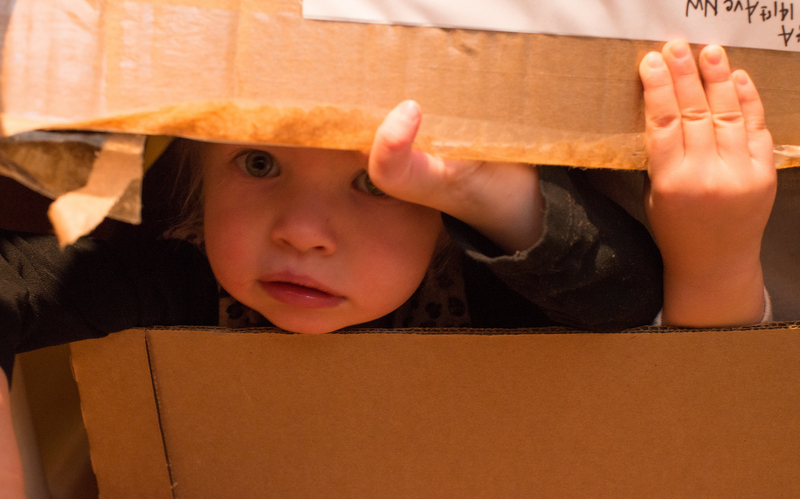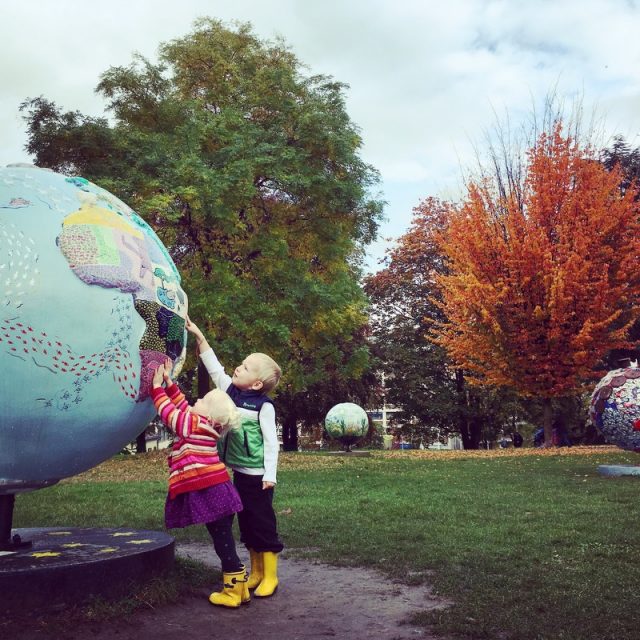Could my young children already be wrestling with their cultural identity? In preschool??
As with many profound reflections, this one came about at the table, where precious friends asked us how the last few months had treated us as a family. I am not sure any of us expected all that trickled out.
You see, for about five weeks in the late Autumn, we had a really challenging patch, especially with one of our three children. Bedtime strikes deep into the night, anger and yelling fits, aggressive behavior, time consuming tantrums. Like most families, we go through any number of these ailments in a given week, but it was daily and rather extreme.
As waves of house guests came and went, our kid’s challenging behavior left me both depleted and embarrassed for not being able to get my child to eat or smile, let alone say ‘hello’ or ‘pretty please’. I was ashamed I couldn’t handle my kids come dinner time. Time and time again, we left the dinner table with a flailing child over arm. Why on earth was my kid so out of sorts? Was it the many guests? Or the later dinners? Was it ever going to get better?
We were going through days upon days that turned into weeks upon weeks of this bewildering behavior. It felt so darn lonely. I called older mothers. And peers in similar trenches of motherhood. I even remember resorting to good old Dr. Google, looking for parents who had gone through a similar phase. Misery loves company.
“Kids are so tired at this age. Wait and see how fast they adapt!”
“School makes them hangry, it’ll pass after two weeks!”
Oh good.
But for weeks and weeks, it didn’t really pass. I remember one time, trying to peel a yelling kid off a large rock in the school parking lot. Hundreds of kids were happily on their way home. All, except for mine, screaming, neither wanting to go back to school, nor come back home to a loving family. What was wrong with my child?
Right around this time, I came across Cécile Gylbert’s observations on Third Culture Kids (TCKs). While much of her work in Les Enfants Expatriés : Enfants de la Troisième Culture is based off of Pollock’s research, there is a little gem of a segment in her book that piqued my interest. It was a little paragraph about how humans transmit culture and how TCKs assimilate their own and figure out their sense of belonging within the beautiful Third Culture.
Culture is transmitted through us, the parents as most important educators, but also by ways of family, friends, public institutions, secular or religious community and, you got it, through school.
As I see it, school is one of the primary direct diffusers of cultural values and beliefs of a society. And, many beliefs taught at school are shared with families in that community. Reinforcing the same cultural values at home and later at school create a strong sense of cultural stability and belonging. Cultural conflict between home and the surrounding environment, particularly for a child who thrives in the stability of patterns and rules and predictability, has got to then be terribly destabilizing.
I told our friends that night how many of our home values are compatible with the French system. Otherwise we likely wouldn’t have placed them in the local school system. There is plenty of goodness in that place and such passionate a teaching body. We count it as a blessing to have a free preschool, caring about language, literature, nature, science and road safety. Plenty of days, like when they all jump on the bus to go to the theater, or bake together or sled down a hill at recess, I revel in the free gift of quality childcare. It’s just wonderful.
And yet, some of our home values, are simply not shared by the school. Worse, some of the values supported at school are in fact in direct opposition with how we have chosen to raise our kids.
This is not to say that there isn’t a certain malaise on some level for all monocultural kids when they first adapt to school, but boy, what stark home/school contrast we see with all these cultural layers.
Our friends begged for examples.
Where honesty and integrity, self-expression and creativity are celebrated in the US or the UK and oftentimes in our home, those aren’t typically high values in France. At French school, there is a push towards respecting a more top-down authority, developing kids’ autonomy and independence, upholding secularism and critical thinking at all costs, all which reflect values of the Republic.
Embarking on our new journey in France, I knew there would be a discrepancy between our home and community value systems, but perhaps I didn’t expect to see so much difference, so early on. Even at age two.
Our dinner had come to a close, but our friends were still thoughtfully listening to my rambling. On top of being physically exhausted, and mentally adjusting to rhythms of school, I concluded, I think those intense five weeks were more than anything about our kid processing our home value system vs. our new community one they face the vast majority of the day.
Just to be clear, I do not think our preschoolers are going through a crisis of cultural identity confusion. That would be undermining much more significant challenges they face as they return to a passport culture later on in life. But I do think they are already trying to dance cross-culturally with two different looking shoes. They are forging who they are, given two contrasting worlds.
With a tiny bit of hindsight, I can see how troubling it must have been for a preschooler to juggle conflicting sets of beliefs, our parental fretfulness and understand where they belong…

Probably because at night, laying in bed, we recall their ready fisticuffs and worry who they might be becoming, we looked for someone to blame.
I’d openly shown my dismay at teachers who raise their voice.
Or, that no adult broke up a fight in the school yard. Kids fighting like animals for bikes and the strongest bully won as teachers looked on.
Then, there was the ridiculous didn’t-have-to-be fight between Father Christmas and Jesus. “What’s Christmas about?” teachers asked our kids. Our kids told them about baby Jesus’s birthday, and teachers said “we can’t say that word”. They were to believe in the truth of Santa.
Probably because I assumed all humans shared the desire to impart real facts (vs. “alternative” facts) to kids, I dug in my mama bear heels.
Next, we had been over-reactive hearing about some of the grotesque stories read at school and our kid was painfully singled out after telling the the teacher “my parents didn’t like that book”.
Probably because we felt a lack of control, we’d been openly critical, hugely adding to our kids’ instability.
We always say that little kids adapt to a new environment so well – and they certainly do. But it’s so easy to forget all the things that their brains are trying to figure out in the early years.
There isn’t a pretty bow to wrap this post up in at this point in our journey. For us parents, it’s very much a journey of faith to believe our kids will turn out okay and even thrive in an environment so different from home – with all the good and the less good.
What a gift it will be then, for our kids to learn to be comfortable with that “different” so early on. It’s a truth that will be their banner for a lifetime as they fill their sparkly new Third Culture shoes and grow those tender little world-shaped hearts.

Read more articles about the Third Culture here.

I found your blog (don’t remember how!) and have been following your posts for a few months now. My family moved from the US to SE Asia almost a year ago. One of my girls is attending a Thai preschool and let me just say… I hear you… I HEAR YOU on all of this. The acting out, the adjustment, the differing values, the embarrassment, etc. It was comforting to read about another mom in the same boat. I keep trying to be aware of all the benefits of the life we’re leading, because the benefits are plentiful too!
Hi Christie!
I’ve sat on this post for about three months, unsure of whether or not to publish because it seemed a little futile. I ended up chopping off a whole lot (like, how we as parents are approaching the value conflict now, more practically), but I felt it may still be worthwhile putting the article out there, just for mothers facing a similar struggle. It’s so normalizing to hear you have been going through some similar issues. Thanks SO much for stopping by with your comment.
PS: I look forward to following along on your blog, which I just discovered!
Yes, I always appreciate it so much when someone stops to comment on a post or tell me “in real life” how my writing has helped them. It’s the best! So glad you posted this because it helped me half a world away.
Adjustment is never easy 🙁 !
Your kids had to adjust to school & another country, no wonder something like that happened… Even if it wasn’t an easy period for you as i can imagine.
Josh had a lil period like that, but it was especially because of starting to go to school & i going back to work transition.
Such a bummer that they are already reading them some grotesque stories at their age. Your kids are blessed to have you, with everything you do for them & the ideas/reflections you are sowing in their minds.